- News
- Reviews
- Bikes
- Accessories
- Accessories - misc
- Computer mounts
- Bags
- Bar ends
- Bike bags & cases
- Bottle cages
- Bottles
- Cameras
- Car racks
- Child seats
- Computers
- Glasses
- GPS units
- Helmets
- Lights - front
- Lights - rear
- Lights - sets
- Locks
- Mirrors
- Mudguards
- Racks
- Pumps & CO2 inflators
- Puncture kits
- Reflectives
- Smart watches
- Stands and racks
- Trailers
- Clothing
- Components
- Bar tape & grips
- Bottom brackets
- Brake & gear cables
- Brake & STI levers
- Brake pads & spares
- Brakes
- Cassettes & freewheels
- Chains
- Chainsets & chainrings
- Derailleurs - front
- Derailleurs - rear
- Forks
- Gear levers & shifters
- Groupsets
- Handlebars & extensions
- Headsets
- Hubs
- Inner tubes
- Pedals
- Quick releases & skewers
- Saddles
- Seatposts
- Stems
- Wheels
- Tyres
- Health, fitness and nutrition
- Tools and workshop
- Miscellaneous
- Buyers Guides
- Features
- Forum
- Recommends
- Podcast
review
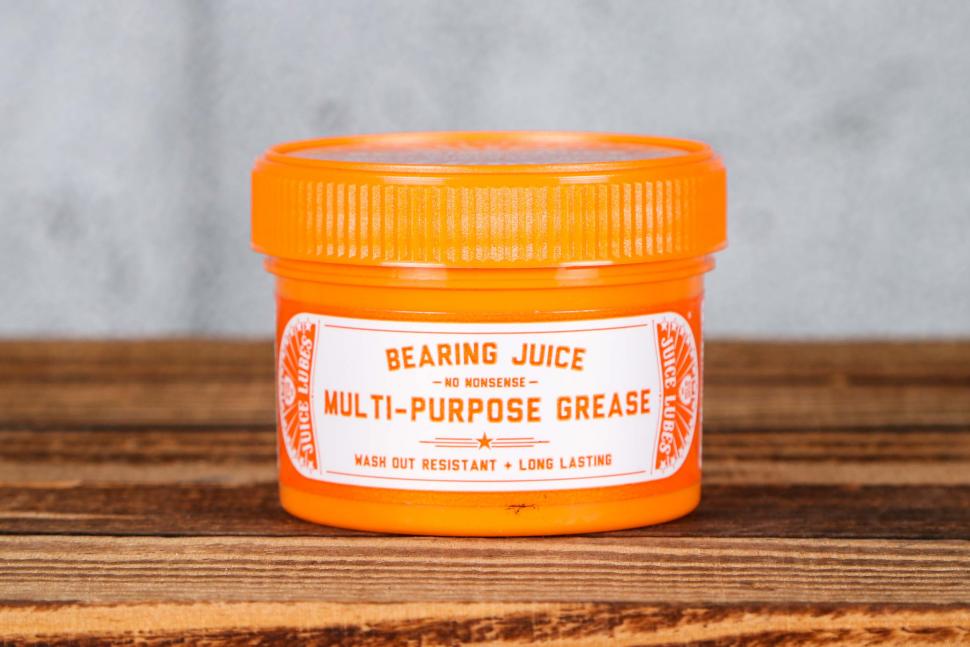 2022 Juice Lubes Bearing Juice Waterproof Grease
2022 Juice Lubes Bearing Juice Waterproof Grease£9.99
VERDICT:
Very good, seemingly durable grease for bearings and metal contact points – a good bet for bikes in hard service
Economical
Really smooth
Stands up to harsh conditions
Seemingly kind to seals and composites
More limited in use than general grease
Weight:
150g
Contact:
At road.cc every product is thoroughly tested for as long as it takes to get a proper insight into how well it works. Our reviewers are experienced cyclists that we trust to be objective. While we strive to ensure that opinions expressed are backed up by facts, reviews are by their nature an informed opinion, not a definitive verdict. We don't intentionally try to break anything (except locks) but we do try to look for weak points in any design. The overall score is not just an average of the other scores: it reflects both a product's function and value – with value determined by how a product compares with items of similar spec, quality, and price.
What the road.cc scores meanGood scores are more common than bad, because fortunately good products are more common than bad.
- Exceptional
- Excellent
- Very Good
- Good
- Quite good
- Average
- Not so good
- Poor
- Bad
- Appalling
Juice Lubes Bearing Juice works very well – it has kept bearings buttery smooth and well protected during a very wet test period, and it lasts well too. Something like Peaty's Speed Grease will trump it if you're looking for the lowest friction, but for bikes in hard service there's a lot to like, and a little goes a surprisingly long way.
As the name suggests, it's blended specifically for bearings – think headsets, pedals and hubs rather than shock internals or threaded components, though it won't do the latter any harm.
It's a fully synthetic formula, blended with high-pressure additives designed to ensure it stays put when the weather turns apocalyptic. It's tested to marine standards, which means it clings very convincingly to the host and will resist water and similar ingress.
Juice Lubes says you can apply it by hand, brush or old-school grease gun. Viscosity is high, so it's quite sticky – surprisingly so compared with more general workshop blends. This was particularly apparent when I was applying it by hand.
Regardless of their type, greases can still react badly with each other, so strip any residual stuff first with your chosen degreaser.
Test subjects
I treated the lower bearing race of my rough-stuff tourer's headset, along with its two-piece Shimano Deore Hollowtech axle, and my touring trailer's cup and cone wheel.
It's not ideal for threaded parts, such as the external splines of a cassette body, as it's too thick and putty like, but I also added a sliver to some quick-release skewers just to see what, if anything, might happen, especially since they're right in the firing line of wet, mucky stuff.
A little goes surprisingly far. I applied a modest layer on the crankset's axle and splines, adding a little extra where these meet the bearings, and a trace to the pre-load cap. I was more generous with the headset's lower race, though this was more to do with me being unaccustomed to its flow rate, rather than a deliberate act – so I transferred this to the hubs' quick-release skewers.
Performance
In use, it's comparable with some of my long-term favourites, including Park Tool PolyLube 1000 and White Lightning Crystal Clear Grease.
It clings to hosts very convincingly, and my crank and headset bearings felt buttery smooth – although friction was noticeably higher than the Peaty's Speed Grease it was replacing. I've found the Peaty's surprisingly long-lived, too, so this might be a better choice on a time trial bike or in other competitive contexts, where these gains are useful.
Durability
It's a bit early to comment on its long-term staying power, but I used the grease over a decade back with good results. Currently, around 600 predominantly wet, grotty miles, coupled with regular washing and rinsing, have shown little evidence of shifting it. This is true across the board, but noticeably so at the hubs and bottom bracket.
There's some trace grime, where excess has crept out, but no worse than other synthetics I've used, and superior to more basic lithium and PTFE formulas.
> How to clean your bike – from a quick lick to a full makeover
I'm also pleased to report that it hasn't done anything anti-social to neighbouring seals or composites.
Value
Bearing Juice comes in two sizes, this 150ml 'home' pot, for £9.99, or a 500ml workshop size that costs £19.99.
A tenner for 150ml makes it a sound contender. While the Park Tool PolyLube 1000 I mentioned earlier is £8 for a 120ml tube, the White Lightning is £9.99 for 100ml, as is Peaty's Speed Grease.
Finish Line's Ceramic Grease is another I've used over the years, and while a solid performer, it's £11 for 60ml, and isn't kind to seals.
Conclusion
Debate may rage in some quarters about whether specific greases are more about marketing than tangible advantage – and I'm one of the first to plump for a good general grease – but I've warmed to Bearing Juice for moving components and contact points. It's very good for those tasks, and good value too.
Verdict
Very good, seemingly durable grease for bearings and metal contact points – a good bet for bikes in hard service
If you're thinking of buying this product using a cashback deal why not use the road.cc Top Cashback page and get some top cashback while helping to support your favourite independent cycling website
road.cc test report
Make and model: Juice Lubes Bearing Juice Waterproof Grease
Size tested: 150ml
Tell us what the product is for and who it's aimed at. What do the manufacturers say about it? How does that compare to your own feelings about it?
Juice Lubes says: "Bearing Juice is a tough-as-nails grease that's designed specifically for bicycle use. It's for all your bits with bearings – such as headsets, bottom brackets and hubs.
When your bearings start spinning, BJ will kick in and release its magical lubricating juice whilst also battling moisture and keep your bike running sweeter for longer. It'll fight back moisture, it's tough against jet washing and it'll guarantee more time on the trails and less time in the workshop."
I'd say it's a stout and seemingly stoical synthetic grease that appears kind to seals and similar rubberised components. It also seems effective on metal contact points.
Tell us some more about the technical aspects of the product?
From Juice Lubes:
Waterproof with high resistance to water washout
Adhesive grease with incredible sealing properties
Excellent corrosion protection
Contains extreme pressure lubricity additives
Specifically designed for low speed applications, hubs, BB's, Headsets, Pivot Bearings, Pedals
Carbon safe
PCR Recyclable packaging
Rate the product for performance:
8/10
It has kept bearings buttery smooth and well protected during a very wet test period.
Rate the product for durability:
8/10
I've used Bearing Juice before, some years ago, and to good effect. Thus far our test sample has been unaffected by daily exposure to waterlogged lanes, trails and similarly harsh conditions.
Rate the product for value:
7/10
It's quite competitive compared with others, though it might be a bit specialist for some tastes.
Tell us how the product performed overall when used for its designed purpose
Overall I've been impressed. A little goes a long way, moving parts feel buttery smooth and have remained so, despite many miles through a relentlessly wet winter. Friction is more apparent than with some (Peaty's Speed Grease, for example), which wouldn't bother me for general riding, but racers looking to secure every possible advantage might prefer something like Peaty's.
Tell us what you particularly liked about the product
Easy and economical to apply. Bearings feel really well lubricated and it lasts well. It seems to play nicely with rubber seals and other composites too, which is a major plus over lithium-based preps or those with PTFE. A particularly good bet for unsealed/traditional cup and cone hubs, too.
Tell us what you particularly disliked about the product
Nothing.
How does the price compare to that of similar products in the market, including ones recently tested on road.cc?
At £9.99 for 150ml it compares well – Park Tool's PolyLube 1000 is roughly the same at £8 for a 120ml tube, but White Lightning Crystal Clear Grease is £9.99 for 100ml, as is Peaty's Speed Grease, and Finish Line's Ceramic Grease is £11 for 60ml.
Did you enjoy using the product? Yes
Would you consider buying the product? Yes
Would you recommend the product to a friend? Yes, for bearings and contact points.
Use this box to explain your overall score
It's very good when used on bearings and metal contact points, and good value too. But look elsewhere if you're wanting something more universal.
About the tester
Age: 49
I usually ride: Rough Stuff Tourer Based around 4130 Univega mtb Frameset My best bike is: 1955 Holdsworth Road Path and several others including cross & traditional road
I've been riding for: Over 20 years I ride: Most days I would class myself as: Experienced
I regularly do the following types of riding: cyclo cross, commuting, touring, fixed/singlespeed, mtb,
Shaun Audane is a freelance writer/product tester with over twenty-eight years riding experience, the last twelve (120,000 miles) spent putting bikes and kit through their paces for a variety of publications. Previous generations of his family worked at manufacturing's sharp end, thus Shaun can weld, has a sound understanding of frame building practice and a preference for steel or titanium framesets.
Citing Richard Ballantine and an Au pair as his earliest cycling influences, he is presently writing a cycling book with particular focus upon women, families and disabled audiences (Having been a registered care manager and coached children at Herne Hill Velodrome in earlier careers)
Latest Comments
- Bungle_52 3 min 27 sec ago
I have some sympathy. You have to pay out for excise duty and MOT irrespective of how often you use a vehicle so it probably makes economic sense...
- OldRidgeback 26 min 48 sec ago
Interesting, tho they only take narrow 20" slick tyres. I'd want to be able to use 1.75 Maxxis DTHs.
- don simon fbpe 54 min 48 sec ago
Who'd've thought that a certain whinging section (right whingers get uppity for calling them what they are) of society would resort to division,...
- Exup 2 hours 27 min ago
At least some justice is being done........
- BIRMINGHAMisaDUMP 2 hours 37 min ago
I imagine the Police treat bike theft as an insurance issue rather than a criminal issue. Can't blame them to be honest. The best thing is to use...
- David9694 3 hours 3 min ago
Police launch investigation into destruction of barber shop in Hythe High Street...
- ktache 11 hours 33 min ago
I'd love for them to put a number on that "inappropriate speed"
- Nick T 12 hours 26 min ago
They need to use some harder material for the cleat retention clip really, that's worn out long before any bearing has had a chance to fail on...
- yiipeeia 15 hours 16 min ago
I am 67 and I cycle with two groups during the year The Haddenham Easyriders International who ride during the summer on Thursday evenings, and The...
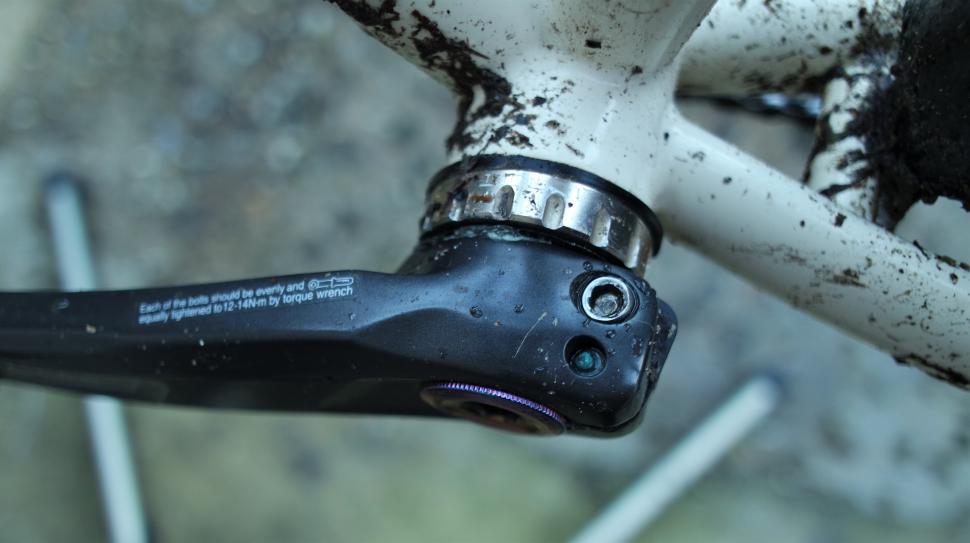
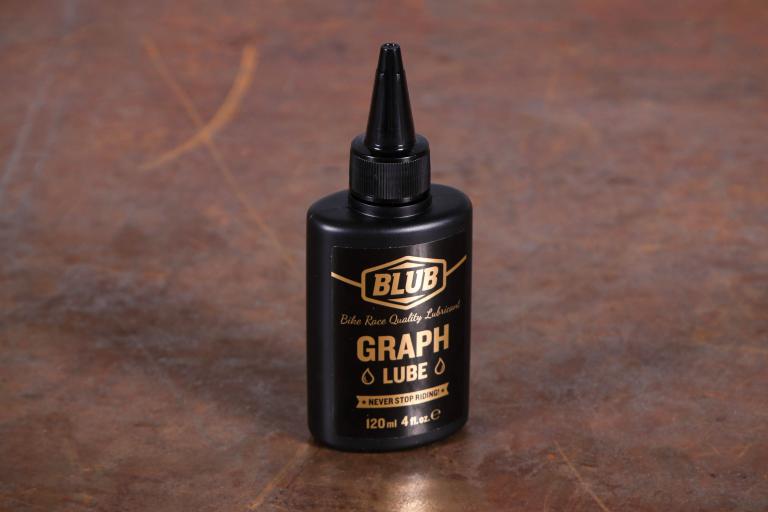
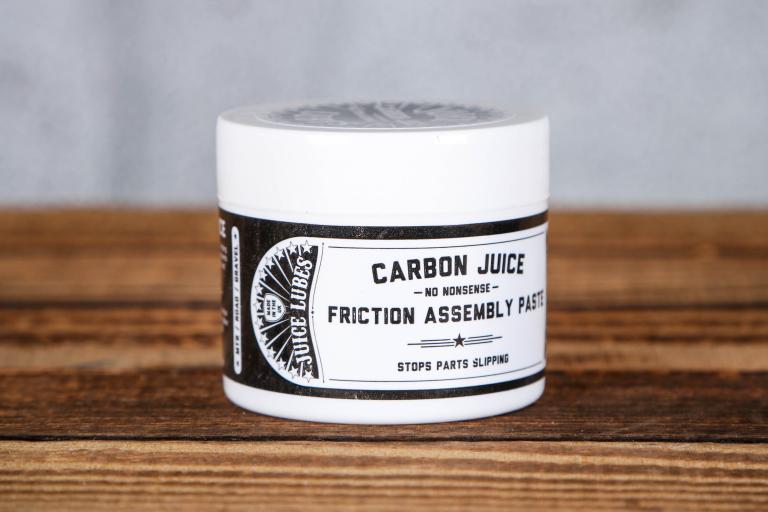
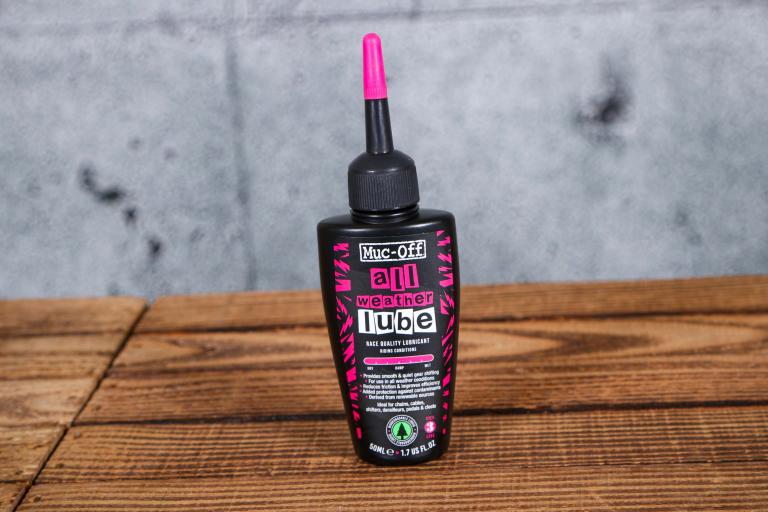
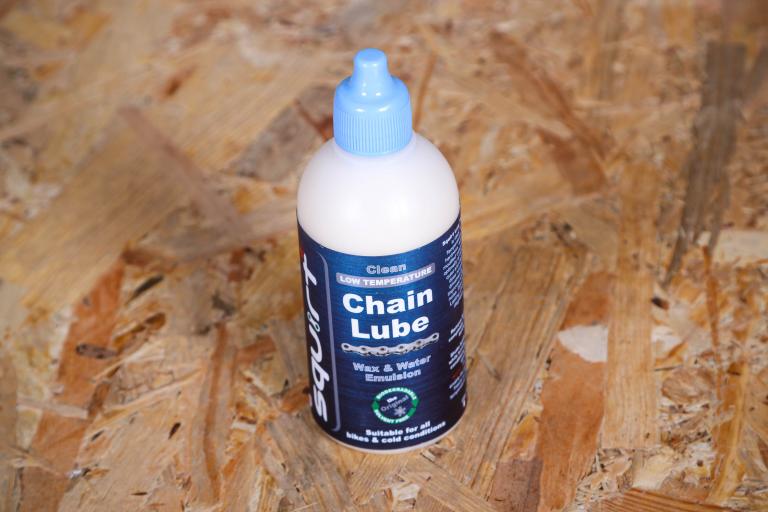
Add new comment
2 comments
It certainly lasts; my little pot is still two-thirds full after three or four years of general use on numerous bikes. It will probably see me out.
Been using it for about three years, as you say it stays put, even in things like Fulcrum hubs which are horribly exposed, particularly the freehub body. I use it for anything which rotates and in a pinch for things like stem bolts. Unless it dries out it will probably last me a decade.
I might have taken things a little far on the matchy-matchy front though, it's very close to Giants gloss desert sage on my Revolt Advanced.